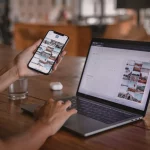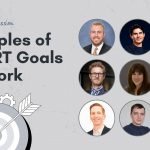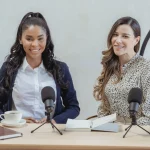How Do You Become Good at Reading People?
Understanding people is an art that requires practice and keen observation. We’ve asked CEOs, coaches, and other people who practiced reading people to share their insights on this topic. Here are nine insightful responses we received, from looking for aggression or pushiness to identifying inconsistencies to uncover true emotions.
- Look for Aggression or Pushiness
- Observe Body Language and Expressions
- Practice Active Listening and Seek Nonverbal Cues
- Interact with Diverse Individuals to Detect Dishonesty
- Trust Your Gut
- Resist Talking to Understand People Better
- Study Micro-Expressions
- Focus on Specific Body Language Aspects
- Identify Inconsistencies to Uncover True Emotions
Look for Aggression or Pushiness
I’ve always been good at reading people, and it’s just as well, as I started my psychic business by working alone, doing one-to-one consultations for clients.
 Most of these people were total strangers and were coming to see me at my home where I was alone, so I had to get a good idea of whether I could trust them enough before I allowed them an appointment. I soon got to the point where I could read people over the phone quickly enough to be able to judge if it was safe to allow that person to come and see me for a reading.
Most of these people were total strangers and were coming to see me at my home where I was alone, so I had to get a good idea of whether I could trust them enough before I allowed them an appointment. I soon got to the point where I could read people over the phone quickly enough to be able to judge if it was safe to allow that person to come and see me for a reading.
I would look for signs that they were pushy, aggressive, or not really interested in the psychic arts (some men would ask if I did “extras” and hint at sex), and if they were, they were not given an appointment—I was fully booked. It was very important because it could have been very dangerous for me to let the wrong sort of person come to see me when I was a young female alone at home.
 Rosemary Price
Rosemary Price
Psychic, Web Clairvoyant
Observe Body Language and Expressions
I learned to read people when I sat back and observed. Rather than having to be “in” the conversation or mix, I watched body language and expressions. Both are very telling and can be utilized in any career to help you navigate relationships.
For example, in sales, if someone isn’t engaging in conversation with you, they’re likely not interested. Take that as a hint to change your approach or have an honest conversation about where they stand.
 Kelli Anderson
Kelli Anderson
Career Coach, Resume Seed
Practice Active Listening and Seek Nonverbal Cues
Active listening is a powerful communication skill that allows for a deeper understanding of people. It goes beyond simply hearing someone’s words to paying attention to nonverbal cues, emotions, and underlying messages.
Every detail counts. Observing body language, facial expressions, gestures, and tone of voice provides insight into feelings and thoughts. Active listening also aids in empathizing with people and understanding their perspectives. It helps detect discrepancies between what they say and how they act. Picking up all these subtle signals allows for reading between the lines.
Being genuinely interested in the people one talks to builds trust and naturally makes them more eager to open up. Active listening is not a strategy, but a reflection of who one is and how one treats others.
 Agata Szczepanek
Agata Szczepanek
Community Manager, MyPerfectResume
Interact with Diverse Individuals to Detect Dishonesty
Interacting with people more often is a good way to increase your ability to read people. Active listening, observation, and talking less are good ways since I am naturally a good listener.
Certain individuals, such as liars, addicts, criminals, and greedy people, may engage in more complex thinking patterns and manipulative behaviors. Observing and interacting with such individuals can provide a unique opportunity to study and understand human behavior.
Eye movements and patterns, such as looking away or blinking excessively, can sometimes indicate discomfort or deception. Facial expressions, particularly genuine versus fake smiles, can reveal a person’s true emotions. Inconsistent or nonsensical wording may also suggest dishonesty.
I learned how to read people from the street when I was young. Dealing with the worst of the human race can help you learn fast as the people around you are always looking for an advantageous edge over you or to benefit from you.
Al Tran, Realtor, Blogger, Author, DS Inspire
Trust Your Gut
My background, before I opened my business around 11 years ago, was in IT programming where reading people isn’t part of the core skill set. This meant that when I did launch my business, I had to upskill myself on things like that in a hurry if I wanted to do anything besides design a good product.
I ended up taking a series of sales courses, among others, where reading people was a major topic as it is vitally important to being an entrepreneur and the risks we must take on people to succeed. In my experience, one of the more important things that I learned about reading people is to always trust your gut instinct.
You can pick up a huge amount of information in the background that helps you realize if you should trust someone or not, even if your conscious brain isn’t always 100% aware of it.
 Dragos Badea
Dragos Badea
CEO, Yarooms
Resist Talking to Understand People Better
If you want to learn about someone, the best thing you can do is resist the urge to talk too much. Being an extroverted, fast-talker, this is a hard impulse for me to control. I have to be proactive about slowing down, allowing pauses in the conversation, and letting the other person fill the space. Especially when you’re still learning about someone early on, this is a great window into motivations and passive thoughts.
 Trevor Ewen
Trevor Ewen
COO, QBench
Study Micro-Expressions
To become good at reading people, I focused on studying micro-expressions and non-verbal cues. Micro-expressions are fleeting facial expressions that reveal someone’s true emotions. By honing my observation skills, I can detect these subtle cues to gain insights into someone’s thoughts and intentions.
For example, a quick twitch of the lips could indicate a hidden smirk that reveals someone’s amusement despite their attempt to appear serious. Non-verbal cues, like body language and gestures, also provide valuable information. For instance, crossing arms and avoiding eye contact might suggest defensiveness or discomfort.
By paying attention to these cues, I can better understand individuals beyond their words, enabling more accurate interpretations.
 Yoana Wong
Yoana Wong
Co-Founder, Secret Florists
Focus on Specific Body Language Aspects
While you can, and should, take a person’s body language holistically, I’ve found that focusing on one or two aspects of their body language at a time works better if you plan to apply classic body language methodology.
If you’re looking to analyze someone’s body language, you are going to be looking for body positioning, eyes, voice pitch, little movements, etc.—a lot to keep track of at once when put together. By splitting your observations off into one or two things and then cycling through them during the conversation, you make it easier to see if there is anything that strikes you as unusual.
 Onno Halsema
Onno Halsema
CEO, Contentoo
Identify Inconsistencies to Uncover True Emotions
When reading people, I focus on identifying inconsistencies or contradictions between their verbal and non-verbal cues, or between their actions and stated beliefs. For example, if someone claims to be confident but exhibits nervous body language, it could indicate underlying insecurities.
Similarly, if someone speaks passionately about a cause but takes no action to support it, their words may lack sincerity. By paying attention to these incongruences, I can gain deeper insights into someone’s true thoughts, emotions, or motivations.
 Jason Cheung
Jason Cheung
Operations Manager, Credit KO
Submit Your Answer
Would you like to submit an alternate answer to the question, “How did you become good at reading people? What is something that you look for when reading someone?”






